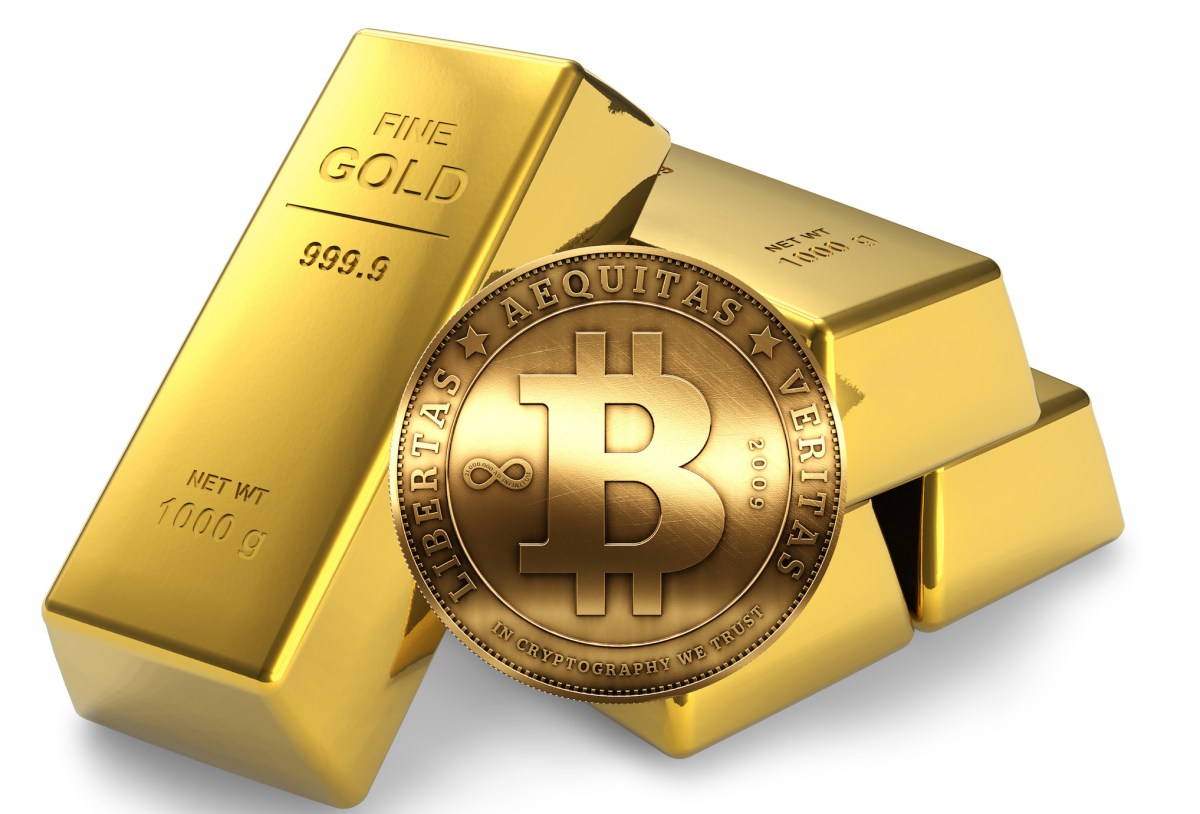Gold or Bitcoins?

The graph we see here is not about gold or bitcoins, but about the PUBLIC DEBT OF THE USA, which has now exceeded 20,000 billion dollars. This is not an isolated case: by now most of the nations in the developed world, with the exception of the virtuous island of Switzerland, are affected by a high public debt; Japan and Italy are among the top rankers in the red, with a debt in relation to the GDP that is well above the danger levels.
Debt is financed with more debt in an infinite cycle, which, by printing money (fiat money), attempts to debase the value of money and the citizens’ purchasing power.
Both GOLD and BITCOINS, and the other CRYPTOCURRENCIES, are instruments completely free from the control of the central banks, and are therefore a natural diversification from the impacts that can be generated by the unconventional manoeuvres of the central banks.
Could we perhaps consider gold as a means of diversification in the past, and instead see the cryptocurrencies as the means of diversification destined to replace gold in the future?
To answer this question we must examine the relationship between gold and bitcoins compared with other assets and their function as a store of value [in the article the terms bitcoin and cryptocurrencies are used as synonyms, referring more in general to all the currencies based on the blockchain, Ed.].
The decorrelation of gold and bitcoins
At the moment, the BITCOIN has a total decorrelation with the other assets. Its price movements do not present any links with other financial instruments as they are driven by an independent supply and demand. This characteristic can be accounted for by the fact that the market is relatively young, with a rather short history. Probably the decorrelation will gradually weaken as other financial instruments will catch on to its progress.
GOLD has an inverse correlation with the dollar, that is, it increases in value as the dollar weakens; the degree of this link is rather variable, however an investment in gold is reasonably well protected from the loss of purchasing power of the American currency. But it is in market shocks and in the response to geopolitical tensions that gold truly serves to insure investments. Moreover, in the long term, the rise in the value of gold tends to compensate for the loss of purchasing power brought on by inflation.
From this point of view, gold presents better diversification characteristics, at least currently, compared with the bitcoin and the cryptocurrencies in general.
Are GOLD and BITCOINS an investment?
Although those who are sceptical about gold might criticise its function as a means of investment, as it does not distribute a dividend, it is the history of gold that already disproves this kind of belief from the word go. Since 2000, the value of GOLD has risen from 180 to almost 1,300 dollars per ounce, racking up – despite its ups and downs – an increase of over 600%, and a volatile nature often less pronounced than that of shares.
THE BITCOIN has recently undergone a much higher increase: at the end of 2009 it was worth less than 0.01 dollars and today it has exceeded the value of 8,000 dollars. However, the long road, which has led to this high quotation, is characterised by a high level of volatility, with steep rises and falls that have been just as steep, in some circumstances even exceeding 70 to 80%.
This aspect makes investing in gold rather than in bitcoins more suitable, whereas bitcoins are a better bet when it comes to fast, tactical speculation. These kind of operations are not for the faint of heart, as the level of entry and the maintenance of the position exposes the investment to high risks, and even if the graph always seems to drive the price up, it would be a bad experience for everyone if we were to experience a fall of over 20% in four days, such as that which occurred in the first ten days of November.
In the next article on Gold or Bitcoins? Part 2, we will compare gold and bitcoins as a means of payment and store of value.
Maurizio Mazziero consultant partner of pro aurum

